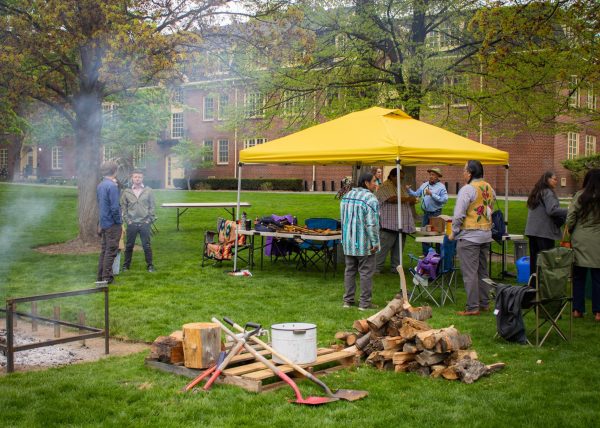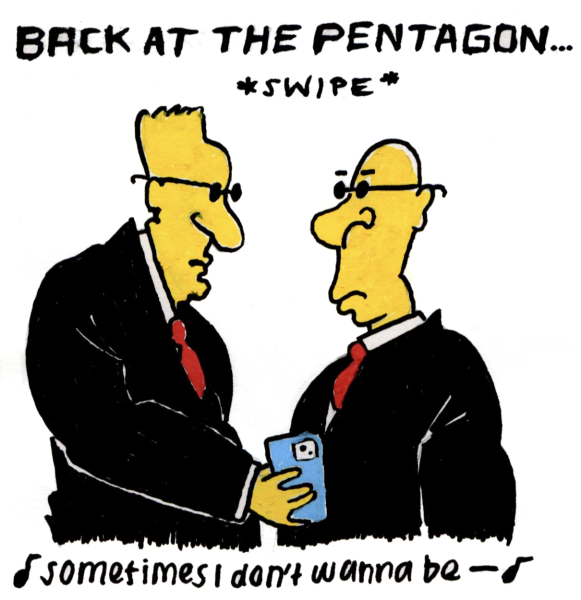Ten months later, Forest case closed
September 6, 2012
Disclaimer: The name of the student charged with these offenses was removed from this article on Oct. 22, 2020 and replaced with “Philip Forest.” The original charges were vacated from his record five years ago and he is no longer legally required to report them, so The Whitman Wire has chosen to honor the the time that has passed and the consequences he has already faced, while still maintaining a record of these events.
Nearly 10 months after a Whitman student was accused of second-degree burglary and identity theft, his case was finally closed at the Walla Walla Courthouse on Tuesday, Aug. 28. Pleading guilty to the amended charges of third-degree theft and first-degree trespassing, 22-year-old Philip Forest was ordered to pay a restitution of $33,862.94 to the college in addition to court costs, sheriff fees and a payment to the crime victim’s compensation fund.
Forest was found in Reid Campus Center by Campus Security the night of Oct. 27, 2011, using homemade swipe cards containing ID information of students, faculty and staff to gain access to restricted areas. Transformed overnight from a senior math and economics major poised to graduate with honors to an accused felon, Forest spent four days in the Walla Walla County Jail immediately following his apprehension as Whitman officials began to investigate the damages.
It was soon discovered that Forest had obtained one staff member’s Whitman login password, allowing him to access to the student information necessary to create counterfeit swipe cards with usable swipe access and flex dollars. Concerned that a major security breach may have occurred, College President George Bridges hired a private computer forensics investigator to do a full review of all key information technology systems and logs. Additionally, all campus swipe cards were re-encoded in an expensive week-long process. The full cost was passed along to Forest in restitution charges.
The investigation ultimately revealed that the IT system remained secure, as Forest had obtained only the credentials of one employee, who did not have access to confidential information.
“I believe our team did a remarkable job managing the incident,” said Chief Information Officer Dan Terrio. “There was a lot of overtime put in by many as we investigated the incident through the card re-encoding last fall.”
Meanwhile, Forest was expelled from the college following a conduct hearing with the Council on Student Affairs, where it was determined that he had violated school policy.
On Aug. 28, Forest stood in the Walla Walla Courthouse clean-cut, crisply dressed and ready to move on with his life. Asked by the presiding judge what his plans were, Forest replied that he intended to continue his education. Carrying the weight of two gross misdemeanors, two years’ probation and a hefty price tag to boot, Forest left the courtroom to pick up where he had abruptly interrupted himself nearly a year before.
“The mistakes that Philip made that led to his expulsion from Whitman were due, in my view, to excessive exuberance in the practice of his considerable computer skills, and to an overactive imagination and creativity,” said Professor Emeritus Dale Cosper, who has known Forest since his first-year Core class and observed his transformation over the past year. “He has come to understand the seriousness of these acts and is remorseful for what he has done. Now, he has his life back, and I think we will all learn one day to what positive ends he will direct his many gifts.”
The Technology Services team plans to continue updating and reviewing Whitman’s security systems to preempt any future attempts to compromise security. “We also will continually educate our students, faculty and staff about their role in maintaining information security and protecting themselves,” said Terrio. Staff and faculty can no longer access the WID numbers of students via People Search, a key feature Forest used to obtain student ID information. WCTS is also working more closely with Whitman Security to monitor unusual facilities access activity on campus. The college has also invested in a new system that encrypts ID card numbers, making it impossible for anyone to duplicate a false card.
As all parties involved in this case move forward, Dean of Students Chuck Cleveland reminds us of the lesson to be learned from the incident.
“It’s a reminder and a caution that there is far more to lose than gain by breaking the law,” he said.








